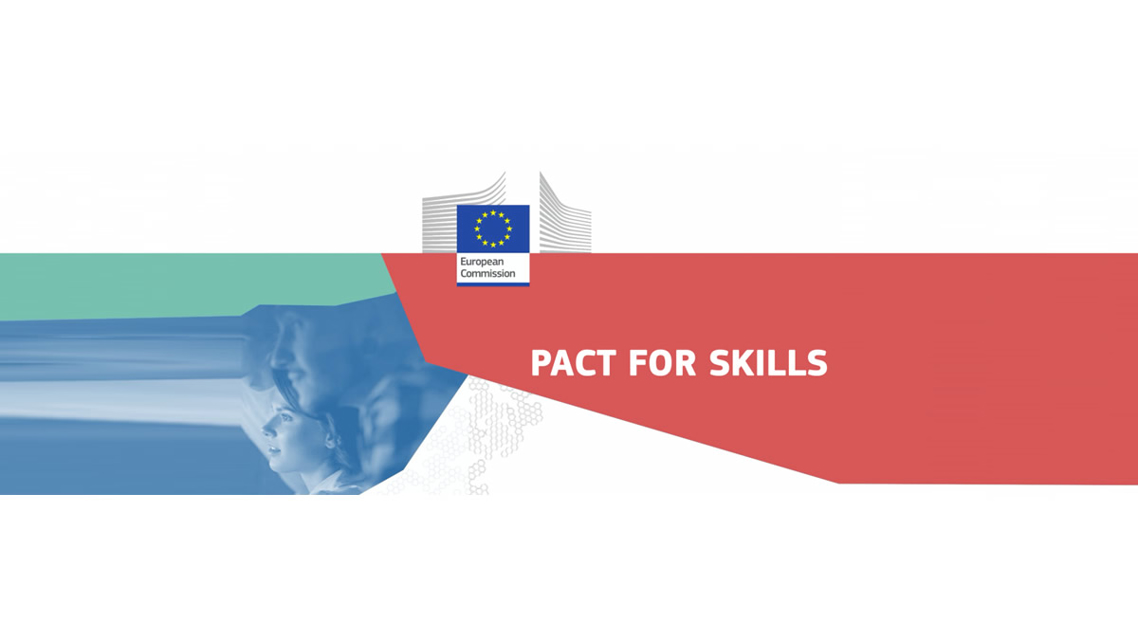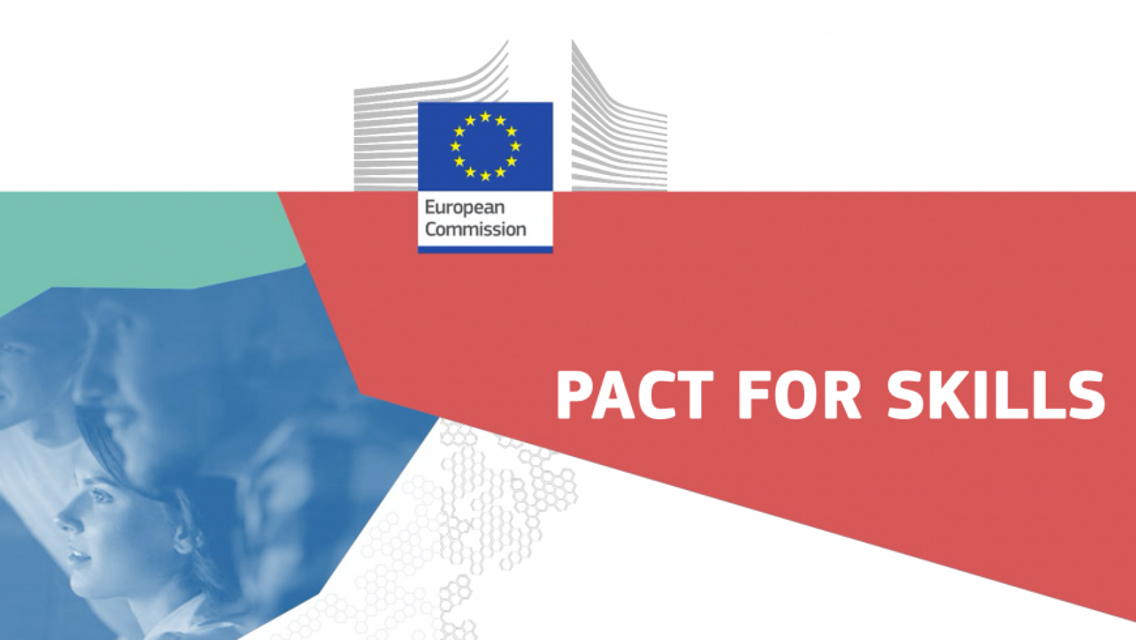For industry and companies to be competitive in a globalised world, education and training are critical to ensure the necessary skilled workforce.
The jobs of millions of workers are expected to dramatically change, and in some cases disappear, in the coming months and years under the combined effect of the twin green and digital transitions, the recovery from the Covid-19 pandemic, an ageing society and a yet-to-be-regulated growing globalisation. In such turbulent times, European policies must be geared towards a central objective: to deliver a socially acceptable solution for every worker confronted with the transformation of their work and to ensure that no one is left behind.
Although legislative competence on education and training remains the prerogative of Member States, the European Union has been multiplying initiatives aimed at fostering training and re-training of young and adult workers over the past few years. The new European Skills Agenda raises the bar insofar as it sets an ambitious quantitative target to be monitored in the European Semester: having 50% of adult participating in learning every year by 2025.
For some years now, the European Commission has acknowledged the sector-specific dimension of skill needs and has therefore started to devise support to hold discussions on sector-specific VET in the form of sectoral stakeholder partnerships. The Pact for Skills launched in November 2020 departs from the previous initiatives as it focuses more on action than on planning. IndustriAll Europe has demonstrated its engagement through active participation over the last 12 months in the launch of numerous sectoral Pacts for Skills from automotive, aerospace and energy intensive industries to textiles, offshore renewable energy and maritime equipment.
Solid vocational education and training (VET]) systems which foster the re- and upskilling of industry workers is one key element of the solution, in combination with ambitious employment and industrial policies. The scale of the challenge is significant – a recent study estimated that 2.4 million workers in the passenger car sector alone need up-/re-skilling in the next decade as a result of e-mobility. Initial and continuing VET and lifelong learning contribute directly to securing workers’ employability, as well as to providing the skilled workforce European industries need to be competitive and innovative on the global stage and to deliver quality jobs. Career-long VET not only helps workers adapt to economic needs, but also supports their personal development and fulfilment. It is key to ensuring sustainable, socially cohesive societies, as well as well-functioning democracies.
The challenge of preparing workers for the transitions and the need for reskilling and upskilling have never been greater. Our demands regarding rights to quality training and life-long learning, combined with future-proof occupational pathways to support job-to-job transitions have been outlined in a recent position paper. This paper also recognises the shared responsibility of governments, employers, workers and their trade unions regarding skills development.
On the first anniversary, industriAll Europe’s Deputy General Secretary Judith Kirton-Darling stated:
“Our affiliates have decided collectively to mobilise for Just Transition this autumn as the changes underway are so radical and workers have a right to be prepared. Policy makers have a specific moral and political responsibility for ensuring that Just Transitions are possible for individual workers across our industries, in every region. Just as we need a review of the current climate goals, we need similar political energy in our anticipation framework to ensure timely re- and upskilling for all workers in all regions. The Pacts for Skills should increase and intensify cooperation and investment.”
Isabelle Barthès, industriAll Europe’s Deputy General Secretary said:
“For industry and companies to be competitive in a globalised world, education and training are critical to ensure the necessary skilled workforce. This is one of the main assets of the European social and economic models. The lack of adequate training will increase the polarisation of the labour market in terms of skills and qualifications. Social dialogue, collective bargaining and trade union involvement at all levels, as well as good framework policies, are critical to ensure quality education and training. Sectoral social partners are best placed to identify skills requirements. They need to be closely involved in the design and the implementation of training, upskilling, reskilling and life-long learning policies, as well as employability policies to ensure future-proof occupational pathways.”

